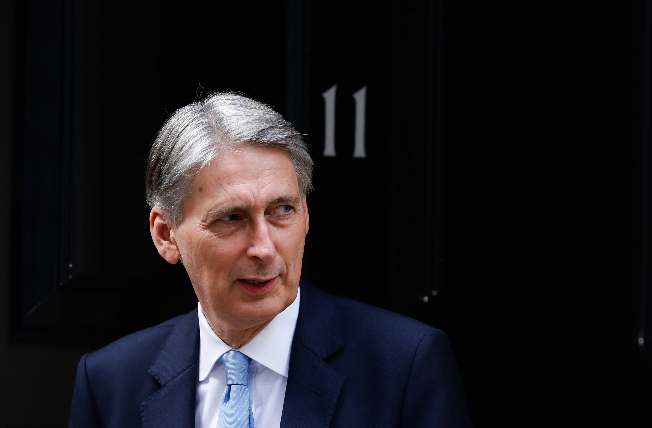Tax reforms aiming to bring the self-employed in-line with full-time employees and renewed investment roads infrastructure have been announced in the Spring Budget 2017.
The Chancellor Phillip Hammond added the pledge of £23 billion of additional infrastructure and innovation investment announced at the Autumn Statement to reveal a further £270 million to keep the UK at the forefront of disruptive technologies like biotech, robotic systems and driverless vehicles.
But Nigel Morris, tax director at MHA MacIntyre Hudson said: “Perhaps the most striking thing about this budget were the things that were omitted. In truth, very few of the announcements directly impact the franchised dealer network.
“There was no rise in fuel duty and no diesel scrappage scheme.”
Hammond announced £90m for the North and £23 million for the Midlands from a £220 million fund that addresses pinch-points on the national road network in his budget and launched a £690 million competition for local authorities across England to tackle urban congestion and get local transport networks moving again.
VED tax was also frozen for hauliers in the budget, which is set to be the last as the government moves towards a new system which will see an Autumn budget followed by amendments in the Spring.
Corporation tax rates will be reduced to 17% by 2020 with a cap on business rates for small businesses to ensure they do not see rises of over £50, rate relief for pubs and a £300 million fund for local authorities to alleviate the pressures on businesses hardest hit by corporation tax changes.
Hammond said “I want to make Britain the best place to set up and grow a business”.
Referring to the corporation tax relief measures, he added: “Taken together, this is a further £435 million cut in business rates, targeted at those small businesses facing the biggest increases.”
Changes to NI
The Spring Budget put in place measures which would attempt reform the current taxation systems to tackle avoidance, evasion, and non-compliance, Hammond said.
But further measures would also be made to foster a more level playing field between the self-employed and full-time business employees.
The lower National Insurance paid by the self-employed is forecast to cost public finances over £5 billion in 2016 and will be addressed by a rise from 1% to 10% for the self-employed in NIC contributions in April next year, with a further 1% rise the following year.
The Class 2 NIC will also be abolished in changes that the Chancellor said would “raise a net £145 million a year for our public services by 2021-22, an average of around 60p a week per self-employed person in this country”.
Company directors, meanwhile, will see their annual tax-free dividend allowance cut from £5,000 to £2,000 with effect from April 2018 in an effort to reduce the NIC gap with the self-employed.
Nathan Sutcliffe, MHA MacIntyre Hudson’s corporate tax manager, said that while the changes were “far from draconian”, the changes to tax and NI contributions could be the start of an “attack on the self-employed” which could gather momentum in the Autumn.
He said: “The government have been looking at ways of tackling zero hours contracts and this could be the start of that, an attack on the self-employed.”
Referring to the changes, Morris added: “What the government has to be careful of are these changes negatively impacting those who are genuinely self-employed.”
Also commenting on the budget statement, Paul Burgess, chief executive of Startline Motor Finance, greed that “There was little in this budget that will have a direct impact on the motor industry”, but he said that the Chancellor’s economic outlook could only be good news for the economy.
The Office for Budget Responsibility has upgraded its growth forecast for 2017 from 1.4% to 2%, with inflation forecast to rise to 2.4% in 2017/18 before falling to 2.3% and 2% inthe years to follow.
Annual borrowing was £16.4 billion lower than forecast, at £51.7bn, in 2016/17.
Burgess said: “The economic outlook is much more stable than was widely forecast immediately post-Brexit, despite the prediction that growth will fall slightly to 1.6% in 2018.
“If this turns out to be accurate, we are looking at reasonably good conditions in which dealers can plan and operate in the medium term, which is good news.”
Skills shortage
The Spring Budget did make an effort to address the skills shortage by introducing a scheme which will see the establishment of T-Levels, an alternative to A-Levels, and the introduction of maintenance loans for 13 to 16-year-olds undertaking higher level technical qualifications at the new Institutes of Technology and National Colleges.
Mr Hammond added: “We will increase by over 50% the number of hours training for 16 to 19-year-old technical students, including a high-quality three month work placement for every students, so when they qualify, they are genuinely ‘work-ready’.
“Once this programme is fully rolled out, we will be investing an additional £500m a year in our 16-19-year-olds.”
Mr Hammond said that the changes would support the further three million apprenticeships targeted by the government by 2020, which he hopes will be realised by the Apprenticeship Levy.















Login to comment
Comments
No comments have been made yet.